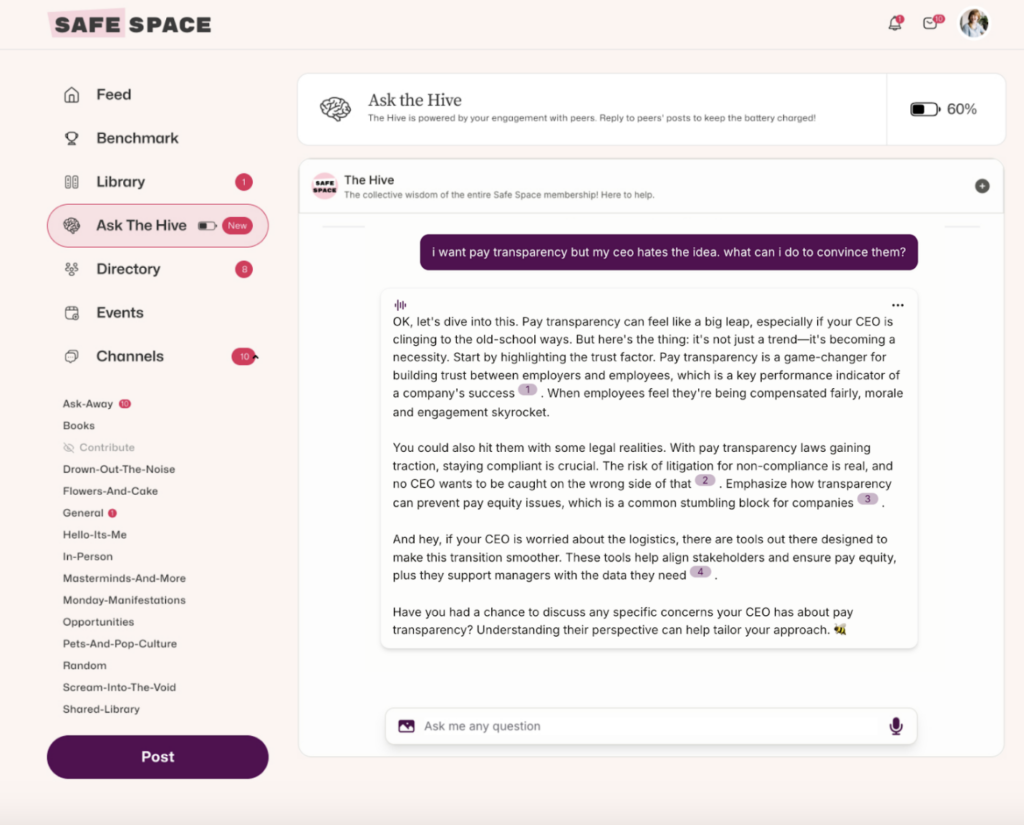
How do you suggest getting through to an owner/CEO who only makes decisions based on cost (money) and rarely takes into consideration other factors? The lack of investment into the business because it “costs too much money” has resulted in bad technology, bad training, bad tools, and disengaged employees who don’t feel cared for.
Context: Privately owned retail business with 150 employees, $70 million in annual revenue, with a single owner.
📣 Alex Clermont, Director of People and Culture @ Stepping Stone:
Try reframing things back to them through a business lens. Bad technology might cost less up front, but how much are you paying long term in maintenance, downtime, overhead, etc? How much more efficient could well-trained employees be? Where do you have data that you can refer to regarding how much money these “budget” solutions really cost?
I like to use the shoes example: A $20 pair of poor quality shoes will have to be replaced every three months. A $100 pair of good leather boots can last three years with the same amount of wear. Long term investments are good business sense.
📣 Marcie Chavez, Senior HR Manager @ Amy Porterfield:
With CEOs and executives highly focused on dollars only, you can try speaking their language as much as possible.
You can try translating the “cost” of his bad decisions and lack of investment into things like: cost of employee turnover (every time you have to replace someone it costs XX amount of dollars) or the cost of the manual labor involved because you don’t have a system in place (costs hours x salary). And then maybe line out the opportunity costs you lost. Example- by having this highly manual hiring process and not having an adequate ATS, we have to spend 10 hours a week. And that’s 10 hours we aren’t spending on (insert desired project) employee engagement (as example). You could even try using ChatGPT to help you come up with solid arguments to demonstrate the cost savings or opportunity costs depending on the issue.
📣 Stephanie Slysz, Human Resources Manager @ RepresentUs:
First of all, I’m sorry you have to deal with a short-sighted CEO. That can be frustrating in an HR role.
I love what Alex said about framing with a business lens. When you’re trying to make your case, data is your friend. What’s the cost of turnover in your company? How much does it cost to hire and onboard new staff vs paying for whatever you’d like the CEO to consider (training, technology, improved benefits etc.)? Setting up the systems to track these different metrics and presenting them to the CEO regularly should help them see the impacts of their bottom-line-driven decisions.
Do you conduct regular engagement surveys? Another way to get data in the hands of your CEO that could lead to a change of heart is through first-hand accounts of the impact of the bad technology, trainings, and systems.
I’d also consider what’s worth fighting for. Be strategic. For example, at the end of a presentation on HR metrics or an engagement survey debrief, you could list some solutions that could help some of the failing metrics. Don’t list all of the ideas you have, but share a couple that you think would bring the biggest impact to your workforce, show the cost, but also the potential growth that could come not only to morale, but to the bottom line. Good luck!

How do you keep leaders from going over your head when they don’t like the answer that you gave them?
Context: Scaling start-up, remote, around 200 employees. As the Head of People, I report to the CEO but am only a VP and do not get to attend the weekly executive team meetings. Recently, when I give answers, people have gone around my head to the CEO (who isn’t an HR person, obvi) to plead their case and I am left doing things that I know I shouldn’t be doing based on how the CEO feels about the situation. (Ex: a leader comes to me wanting to eliminate positions, I walk them through what that means and how eliminating these roles will impact their future ability to hire… they still move forward with the role eliminations. Less than a month after the termed employees leave, the leader sends me a new JD to post & recruit for that is a near carbon copy of the role that we just eliminated). How do I hold my ground without getting bulldozed?
📣 Kendyl Skinner, Head of Human Resources @ Orange Barrel Media:
JOIN 150K+ HR LEADERS
Get insights, learnings, and advice on how to build companies and cultures that people actually love.
No spam. Unsubscribe any time.
As the most senior HR person in the company, I think you should make a case to be included in the weekly management meetings, regardless of your title.
📣 Alex Clermont, Director of People and Culture @ Stepping Stone:
I agree with Kendyl. I have in more than one situation advocated to be in meetings “above my title” because there’s a functional benefit to me being there.
When you discuss this with your CEO, you may also want to lay out some working agreements on how they’ll handle HR situations that are brought to their attention. Name what you’re seeing, describe the impacts, and solidify a process where your authority can’t be circumvented. All HR concerns that come to her should be sent directly back to you as a matter of course.


